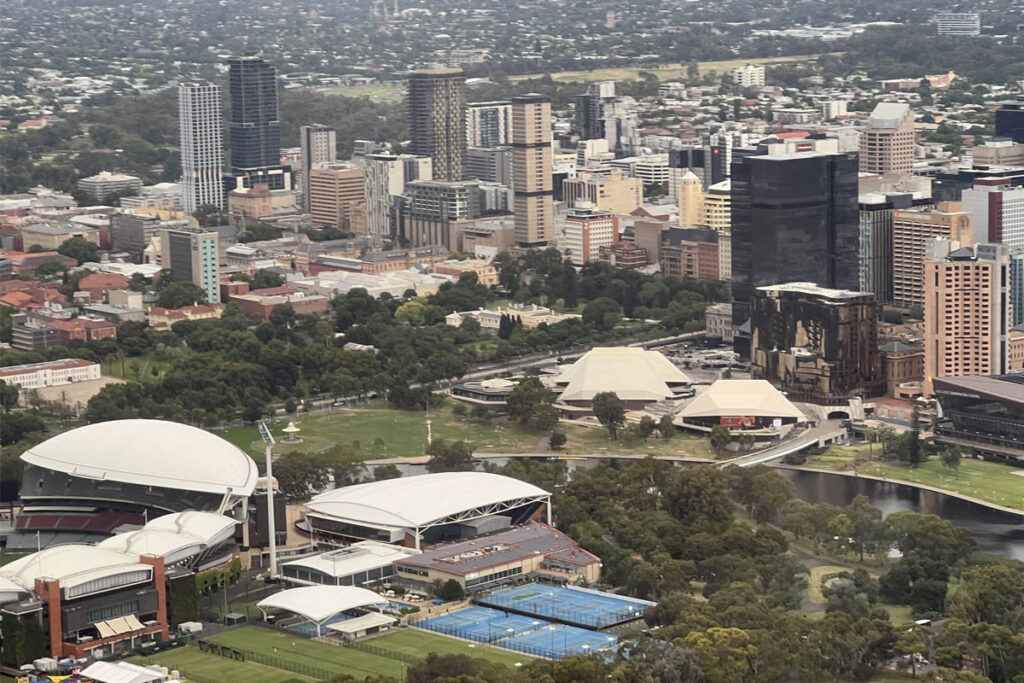City of Adelaide Votes to Subsidise E-Bike Purchases

![]()
Adelaide, SA
On Tuesday, 30th January 2024 the City of Adelaide became the first government in mainland Australia to commit to subsidising the purchase of e-bikes and electric-assisted as well as unassisted cargo bikes for its residents and business operators.
Australian cycling organisations, including Bike SA, have long lobbied all levels of government for just this sort of initiative. It is second only to Tasmania, which late last year launched a rebate program for e-mobility devices (bikes, cargo bikes, scooters & skateboards).
At its meeting, the council voted to support Councillor David Elliott’s motion to develop the parameters for bike-purchase subsidies as part of the Sustainability Incentives Scheme. Mr Elliott is a lifelong cyclist and is chair of the lobbying group Bike Adelaide.
Furthermore, it also voted in favour of council hosting an event to celebrate World Car-Free Day in September this year, while the decision to investigate installing a raised wombat crossing on Franklin St completed the treble of support for active transport and the community-wide benefits it delivers.
One priority of the council’s draft Integrated Climate Strategy is to, “…triple the number of city workers who cycle to work and double the number of local residents who walk to work”.
Bike SA CEO Brett Gillett said the successful motion was, “…ground-breaking and very encouraging.”
“This sets us in motion to deliver real, tangible benefits to the entire community, whether they ride or not,” he said.
“Getting more people cycling improves our health, economy, environment and traffic congestion. Bike SA applauds Lord Mayor Jane Lomax-Smith, Councillor David Elliott and all those who supported this motion and we look forward to watching the scheme’s progress.”
Adelaide Shifts from Pariah to Progressive – What’s Changed?
The three ‘pro micromobility’ votes taken at their recent meeting and their new proactive transport policies represent a 180 degree turn around for the City of Adelaide.
As we previously reported here, back in 2021 the City of Adelaide voted to scrap what would have been its first and only protected bikeway that would have crossed the city centre from east to west. This was despite having to return a $3 million SA State Government grant that had already been committed to the project.
After that decision was made, I wrote this opinion piece, trying to make sense of why the City of Adelaide was so noticeably going backwards, compared with the (admittedly modest) improvements in every other Australian capital city. Clearly many of our readers were equally concerned, as that article was one of our most widely read in 2023.
In 2020 the City of Adelaide councillors famously even voted in favour of promoting a ‘Driver’s Month’ which included promotion and incentives for more people to drive into the city. You can read a detailed summary article of this decision and event here. There’s no sign of any future driver’s months being held.
When Micromobility Report attended the Australian Walking & Cycling Conference in the City of Unley (an adjacent council to the City of Adelaide) late last year, the informed word from advocates and insiders was that after very lean years, the winds were already turning more favourably towards micromobility at the City of Adelaide.
I’m certainly no expert in City of Adelaide politics, in fact, the opposite. It may be that at the most recent council elections some more progressive councillors replaced some of the previous incumbents.
In particular, Councillor David Elliott was only elected in the most recent election.
Looking from afar, another possible catalyst for this shift may be the election on 14th November 2022 of Jane Lomax-Smith as Mayor.
That is a well-known name in South Australian politics. Dr Lomax Smith, who is a medical specialist and researcher by profession, had a long career in state politics including several senior ministerial portfolios. She also served two terms as Mayor of the City of Adelaide from 1997 to 2000. Based upon both her past activities and a brief scan of her recent social media posts, it appears that the words ‘progressive’ and ‘urbanist’ would be appropriate broad descriptions of her philosophies.
As we’ve seen many times before from Paris to London, New York to Boston and closer to home in the City of Sydney, in eras where progressive mayors are elected, good things happen in relation to micromobility, liveable cities and active transport which are all inextricably intertwined. Perhaps the most recent council votes will be followed by more progress from what is currently Australia’s laggard city.
The top section of this article was first published in the Bike SA monthly newsletter.
